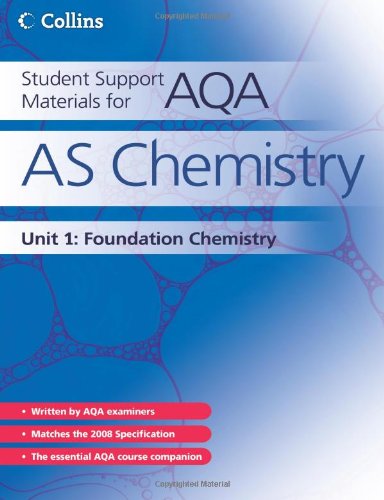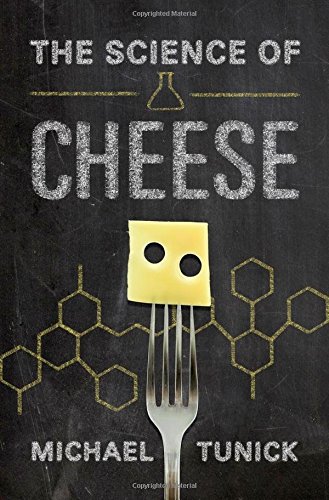Top products from r/chemhelp
We found 24 product mentions on r/chemhelp. We ranked the 56 resulting products by number of redditors who mentioned them. Here are the top 20.
1. Physical Chemistry: A Molecular Approach
Sentiment score: 1
Number of reviews: 2
Used Book in Good Condition
 Show Reddit reviews
Show Reddit reviews2. Organic Chemistry As a Second Language, 3e: First Semester Topics
Sentiment score: 2
Number of reviews: 2
Used Book in Good Condition
 Show Reddit reviews
Show Reddit reviews4. The Organometallic Chemistry of the Transition Metals
Sentiment score: 1
Number of reviews: 1
 Show Reddit reviews
Show Reddit reviews5. The Thermodynamics of Pizza: Essays on Science and Everyday Life
Sentiment score: 0
Number of reviews: 1
 Show Reddit reviews
Show Reddit reviews6. BestEquip 6nm Visible Spectrophotometer 721 350-1020nm Wavelength Range Spectrophotometer Portable Lab Equipment (Type 721)
Sentiment score: 0
Number of reviews: 1
Spectral bandwidth: 6Nm; measurement of optical path: 100mm; optical system: CT grating monochromator, 1200/mm; photometric accuracy: 1. 0% T; photometric repeatability: 0. 5% TWavelength range: 3501020Nm; wavelength accuracy: 3Nm; wavelength repeatability: ≤1Nm; measuring range: 0-199. 0% T, 0-1....
 Show Reddit reviews
Show Reddit reviews7. Vogel's Quantitative Chemical Analysis (6th Edition)
Sentiment score: 1
Number of reviews: 1
 Show Reddit reviews
Show Reddit reviews8. Symmetry and Spectroscopy: An Introduction to Vibrational and Electronic Spectroscopy (Dover Books on Chemistry)
Sentiment score: 1
Number of reviews: 1
 Show Reddit reviews
Show Reddit reviews9. Chemical Kinetics and Reaction Dynamics (Dover Books on Chemistry)
Sentiment score: 1
Number of reviews: 1
 Show Reddit reviews
Show Reddit reviews10. General Chemistry I as a Second Language: Mastering the Fundamental Skills
Sentiment score: 0
Number of reviews: 1
 Show Reddit reviews
Show Reddit reviews11. The Systematic Identification of Organic Compounds
Sentiment score: 0
Number of reviews: 1
 Show Reddit reviews
Show Reddit reviews12. AS Chemistry Unit 1: Foundation Chemistry (Student Support Materials for AQA)
Sentiment score: 1
Number of reviews: 1
COLLINS EDUCATIONAL CORE LIST
 Show Reddit reviews
Show Reddit reviews13. Essentials of Computational Chemistry: Theories and Models
Sentiment score: 1
Number of reviews: 1
 Show Reddit reviews
Show Reddit reviews14. Cracking the GRE Chemistry Subject Test, 3rd Edition (Graduate School Test Preparation)
Sentiment score: 0
Number of reviews: 1
 Show Reddit reviews
Show Reddit reviews15. Chemistry: The Central Science (12th Edition)
Sentiment score: 1
Number of reviews: 1
 Show Reddit reviews
Show Reddit reviews16. Organic Chemistry (6th Edition)
Sentiment score: 1
Number of reviews: 1
Solution Manual
 Show Reddit reviews
Show Reddit reviews18. Chemistry³: Introducing Inorganic, Organic and Physical Chemistry
Sentiment score: 0
Number of reviews: 1
 Show Reddit reviews
Show Reddit reviews



I'd recommend finding yourself two nice textbooks, and working through one methodically while referencing the second during times when the first doesn’t sufficiently explain things. Also, when studying the text, I would recommend solving as many of the “in-chapter” and “end of chapter” problems as you possibly can. You’ll be far more likely to understand the material if you have to apply the requisite knowledge, and it’s pretty established that long term recall will be enhanced by application of material (see the testing effect if curious--Roeidger and Karpicke’s studies were well done).
In fact, regardless of how you are initially presented with the material (be it Khan lectures, textbooks, guides online, people’s answers to your questions, etc.), the bulk of your understanding will likely come from working out problems yourself. This effect can not be overstated, and regardless of how you decide to engage the material, I cannot stress the importance of applying the material.
Assuming you follow the textbook plan, if you find a concept or problem that you just cannot comprehend, look to online resources for aid. Some examples include Khan Academy, MIT Open Courses, and of course, r/chemhelp or r/homeworkhelp.
If you absolutely need some direction and find that a textbook isn’t cutting it, then the MIT series has a number of explicit instructions and lectures to steer you along. If you can catch them when they’re available, Coursera has some courses as well, with actual feedback systems that would likely prove useful.
For book recommendations, I’d check out this thread: http://www.reddit.com/r/chemistry/comments/1xzi9t/general_chemistry_book_recommendations/ There seems to be a good discussion there with lots of options. I personally used Chemistry: the Central Science, but it’s worth mentioning that the math used is pretty low level and isn’t representative of further chemistry study. Still, the concepts are explained fairly well. A note: textbooks can be found for much, much cheaper than is initially seen on listings. Used copies of older textbooks often go for almost nothing. You can even sometimes find PDFs of books, but the legality of that is questionable (even if they’re way easier to navigate and manipulate).
Still, your best course of action likely depends on your individual learning style, so take these suggestions with a grain of salt.
Well, it is a combination of organic chemistry (questions IV,V and VI) and inorganic chemistry (II). Question I is a basic chemistry question.
Question III is maybe inorganic, but could be thermodynamic as well. It depends on where you get the question. I have gotten similar questions in courses about thermodynamics and inorganic chemistry.
I'm not sure what basic books could be useful for you. For my bachelor I use the books organic chemistry and Physical chemistry. These books are quite advanced, I don't know if it helps you in anyway. But this is at least a start.
Sorry, couldn't find a book for inorganic chemistry. (don't know the writer and I can't get to my books unfortunately)
Good luck with learning chemistry!
Those.... don't look like powder funnels. The "drip tip" is the red flag; none of those are going to have particularly wide stems and the long stem is just going to get clogged with powder.
If you're on a budget I'd look for a plastic funnel with a stem OD <24 mm like this one or this one. If you're willing to fork over a little more cash and get a glass one there are nice 24/40 joint funnels like this small one or this huge one.
Standard solutions are prepared in their approximate concentrations and are then standardised against recognised primary standards.
The primary standards are all very pure chemicals that can be further purified by drying in an oven and cooling down in a vacuum desiccator over phosphorus pentoxide.
Primary standards for acids, alkalis and oxidising agents are anhydrous sodium carbonate, potassium hydrogen phthalate anf potassium iodate. In industry you use these so frequently that you get to know their molecular weights by heart.
Once you have standardised solutions of acid, alkali and sodium thiosulfate you use these to standardise other working solutions, so that you have a hierarchy of standards, with the primary standards being the most reliable.
Edit: reference Vogel's Textbook of Quantitative Chemical Analysis, the bible when I was educated.
I highly recommend this book:
https://www.amazon.com/Symmetry-Spectroscopy-Introduction-Vibrational-Electronic/dp/048666144X
My inorganic professor recommended it when I took the course and it was a great investment.
"Organic chemistry is learned only with a pencil and paper"
-My orgo professor
Best advice I got, I say it all the time as a chemistry teacher, repetition, writing things over and over, is the only way to really get it, at least for me. I would take a ream of paper from the printers in the library and sit at a desk and write structures and reactions until I got them.
Also I really liked these books as a supplement
I've yet to have to use it, but I've hear this book Organic Chemistry As a Second Language, is amazing
I highly recommend this book: https://www.amazon.com/gp/product/0131008455/ref=oh_aui_search_detailpage?ie=UTF8&psc=1 It really saved me when I took physical chemistry after only having taken Calc 1.
This is a really great book. Not sure how "undergraduate" it is. But I'm not sure just how undergraduate chemical kinetics, as subject all to its own, is either. The mathematics is not the simplest.
But this book will cover any topic. It's very thorough.
I'd also recommend McQuarrie's PChem book. It has a very clear section on kinetics. And it's my favorite PChem book, but only just nudging out Atkins.
This is the book I used and I really liked it. Has lots of trends and explains things in easy to follow terms.
http://www.amazon.com/Organometallic-Chemistry-Transition-Metals/dp/0470257628
Nice.
I also highly recommend Christopher Cramer's book for applications.
Do a lot of problems. Doing problems helps more than studying your notes.
Also, fuck the textbook they assign. Get this one, it's by far the best pchem book. It does an excellent job of teaching the math and the theory.
http://www.amazon.com/Physical-Chemistry-A-Molecular-Approach/dp/0935702997/ref=sr_1_1?ie=UTF8&amp;qid=1375808822&amp;sr=8-1&amp;keywords=physical+chemistry+a+molecular+approach
Finally, learn to derive the equations. Even if you aren't tested on derivations, it really helps you grok the material and how all the pieces relate.
I can't think of any websites, but have you looked at all the past papers from different exam boards? I remember borrowing revision guides from the libraries which also had a lot of questions and answers too. Hope this helps!
p.s. if you do AQA Chemistry, try these revision guides : http://www.amazon.co.uk/Student-Support-Materials-AQA-Foundation/dp/0007268254
The fat molecules melt from solid to liquid which results in visible beads of melted fat on the surface of the cheese. After a high enough temperature has been reached, the casein protein unfold which permanently changes the cheese - giving the characteristics of melted cheese.
There's more to that in this book... however, I haven't read it... yet! :P
http://www.amazon.co.uk/The-Science-Cheese-Michael-Tunick/dp/0199922306
I would second this, but have to suggest chemistry cubed is a more well rounded introduction to all of chemistry if you're going into degree level
https://www.amazon.co.uk/gp/aw/d/0199277893/ref=mp_s_a_1_2?ie=UTF8&amp;qid=1525706979&amp;sr=8-2&amp;pi=AC_SX236_SY340_FMwebp_QL65&amp;keywords=chemistry+cubed&amp;dpPl=1&amp;dpID=41fawt9QBoL&amp;ref=plSrch
What about something like these?
https://www.amazon.com/gp/product/B01DQL6GEI/ref=s9_acsd_topr_hd_bw_bQc6C3_c_x_w?pf_rd_m=ATVPDKIKX0DER&amp;pf_rd_s=merchandised-search-3&amp;pf_rd_r=8BTA83D955SP8S639MJX&amp;pf_rd_t=101&amp;pf_rd_p=9820cbf9-67a2-58c4-b8ff-3ae6b4ac944a&amp;pf_rd_i=393265011
https://www.amazon.com/dp/B0761SKN6N/ref=sspa_dk_detail_1?psc=1&amp;pd_rd_i=B0761SKN6N&amp;pd_rd_wg=wKOQf&amp;pd_rd_r=AAQHPCH9KDZFRRASA1KE&amp;pd_rd_w=81WBN
If you are interested in these type of questions check out the book thermodynamics of pizza
Well I didn't intend to use it strictly as a powder funnel if at all, so my question remains, what size would the the most similar to this one, mentioned previously?
Ethanol is a very common recrystallization solvent. This is sitting on my desk right now, and I wouldn't be surprised if half of the recrystallization procedures in it call for ethanol. More relevantly, it also is non-toxic, which is useful if you're using it to purify something that's going to be consumed.
I'd posit that you could find a better recrystallization solvent if you tried hard enough, but it probably wouldn't be much better, and it'd probably be toxic.
pdf download for that book, if anyone is interested. It comes in handy on occasion.
https://www.amazon.com/Cracking-Chemistry-Subject-Graduate-Preparation/dp/0375764895
There are dozens of these types of books on Amazon.
According to this book, the Lucas test will produce heat upon reacting with an allyl alcohol, despite it being primary, due to the stability produced from the carbocation. So the Lucas test is conclusive, the melting temp (according to Chem Spider) is around 34 ^o C, and the NMR spectra is a total match